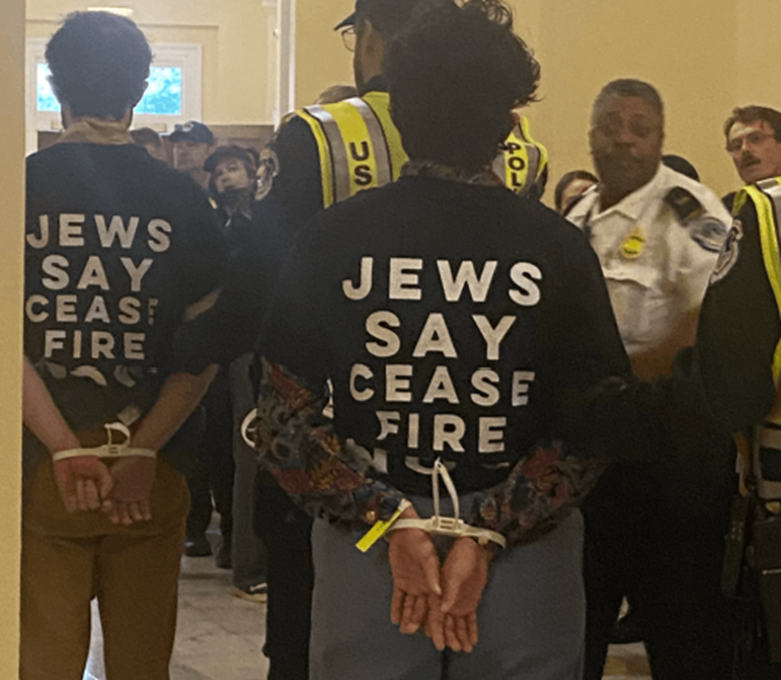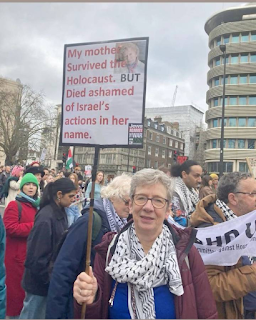NOT IN MY BROTHER'S NAME (repost)
NOT IN MY BROTHER’S NAME
Peace activist Hayim Katsman was murdered by Hamas at Kibbutz Holit.
Reposted from; Common Dreams — https://www.commondreams.org/further/not-in-my-brother-s-name
Photo courtesy of Hannah Wacholder Katsman
Not In My Brother’s Name
Oct 20, 2023
Amidst the horrors in Gaza, progressive Israelis find themselves harrowingly caught between sorrow and the abiding, hard-won conviction their country “cannot fight its way to peace.” Thus does the grieving brother of Hayim Katsman, an academic, peace activist and tender of fruit trees at Kibbutz Holit killed in the Hamas attack, resolutely decry the ongoing carnage. “I know my brother wouldn’t have wanted this,” he says. “Do not use our death and our pain to bring the death and pain of other people.”
Fueled by Hamas’ atrocities and Israel’s bloodlust, the collective punishment of 2.3 million Gazans for crimes committed by perhaps 20,000 terrorists constitutes a mere, brutal “intensification of what Israel has been doing to Palestinians for decades,” writes Norman Solomon. Similarly, the embrace of the mantra this is “Israel’s 9/11” exposes “willful blindness to history.” “Wrapping itself in the shroud of victimhood,” he notes, “the U.S. exploited the trauma and tragedy of those events as a license to kill vast numbers of people — nearly all of whom had nothing to do with the 9/11 attacks — in the name of retaliation, righteousness (and) the ‘war on terror,’ a playbook (Netanyahu’s) government is implementing with a vengeance.” Shamefully echoing our own history, Israel’s “willingness to treat human beings as suitable for extermination” in the name of self-defense is largely ignored by U.S. media: See the New York Times story, relegated to Page 9, about airstrikes flattening four mosques and killing worshipers — and presumably boys playing soccer outside — and razing a busy marketplace to rubble strewn with the bodies of entire families.
In the wake of the horrific violence, the Jewish left both here and in Israel is grappling with walking a near-untenably intricate line to honor both the living and the dead. In this country, Jewish Voice For Peace has called for “channeling our grief and rage into action” to stop genocide in Gaza, dismantle the systems of oppression and apartheid “that brought us to this moment,” and build “a world beyond Zionism.” On Wednesday, 500 protesters, including two dozen rabbis, were arrested in DC demanding lawmakers back a ceasefire in Gaza; earlier, over 5,000 also gathered in the name of “our shared humanity.” In Israel, where many peace activists “dreaming of a different future” were among the dead and missing, Jews argued the roots of Hamas’ assault lay in “failures of political vision.” “We have been telling ourselves fairy tales,” said the head of Breaking the Silence of the fiction they could be safe while “we are controlling millions of people by force…without rights.” “I have no need of revenge,” said the director of a human rights group who hid for hours in a safe room on her kibbutz. “Nothing will return those who are gone. All the military might on Earth will not provide security.”
Despite his grief and sense of loss, Noy Katsman echoes her, rejecting the notion Israel’s violence in Gaza comprises righteous vengeance for his brother Hayim. “They always tell us if we kill enough Palestinians, it’s going to be better for us,” Noy told CNN. “But of course it never brings peace — it just brings more terror, and more people killed like my brother.” Hayim, 32, the grandson of Holocaust survivors, lived for a decade at Kibbutz Holit. Born in Israel to American parents, he earned a master’s degree in Israel and a PhD in International Studies at the University of Washington, where he wrote his thesis on Israel’s religious right and lived part-time with his grandfather; one professor recalled “this wonderful human being (who) had no malice toward either side…toward anyone, really.” A longtime peace activist and former IDF soldier who testified for Breaking the Silence, he was what his uncle called a modest, generous, respectful, intellectually honest “Renaissance man”; at the kibbutz, he was a mechanic, a gardener who often spent time with Palestinian farmers, a musician who played drums, and a DJ — with playlists in both Hebrew and Arabic.
Above all, Noy says his brother believed an endless cycle of violence was “not the way to bring peace.” “I have no doubt that even in the face of the people who murdered him, he would still speak out against the killing of innocent people,” Noy told hundreds of mourners at Hayim’s funeral. “My call to my government: Stop killing people.” It’s not a message getting much air-time in Israel; since Hayim’s death, Noy has given over 20 interviews, but has had no requests from Israeli media. Even during his eulogy, he heard murmurs of anger. Afterwards, though, Hayim’s friends came up to thank him: “One told me, ‘It’s exactly what your brother would have wanted you to say.’” He’s also found comfort in online responses to things he’s posted. “I just wanted to tell you how sorry I am for what happened to your brother,” wrote one Gazan, “and I want to thank you a lot for not wanting us dead like everyone else.” Citing the history of her own Polish and German parents, his mother Hannah Wacholder Katsman said she found it “chilling” that her son “died hiding in a closet.” Still, she said, she knew he “wouldn’t want this conflict to be used to kill innocent people.”
The Mishnah, the first written collection of Jewish oral traditions, teaches that one who saves a single human life is akin to one who saves an entire world. Hayim Katsman, it turns out, saved three. When he heard Hamas forces storm the kibbutz, he went to hide in a safe room closet along with a neighbor, Avital Alajem. As Hamas entered the room and opened fire, Alajem says, Hayim shielded her with his body, taking all the bullets: “He was murdered. I was saved.” Hamas opened the door, pulled her out, handed her another neighbor’s two children, 4 months and 4 years old, and began marching them to the Gaza border. At some point amidst the chaos, her captors abandoned them; clutching both children, she managed to make her way back to the kibbutz. “Hayim in Hebrew means ‘life,’” Alajem said. “And he gave life to this planet. He saved me, and I was able to save two kids.” Years before, Hayim had done fieldwork in Israel for his PhD research on religious nationalism; his dissertation was dedicated to, “All life forms that exist between the Jordan River and the Mediterranean Sea.” May their memories, all of them, be for a blessing.

Our work is licensed under Creative Commons (CC BY-NC-ND 3.0). Feel free to republish and share widely.
Further columnist
Abby Zimet has written CD’s Further column since 2008. A longtime, award-winning journalist, she moved to the Maine woods in the early 70s, where she spent a dozen years building a house, hauling water and writing before moving to Portland. Having come of political age during the Vietnam War, she has long been involved in women’s, labor, anti-war, social justice and refugee rights issues. Email: azimet18@gmail.com
https://www.commondreams.org/further/not-in-my-brother-s-name


Comments
Post a Comment